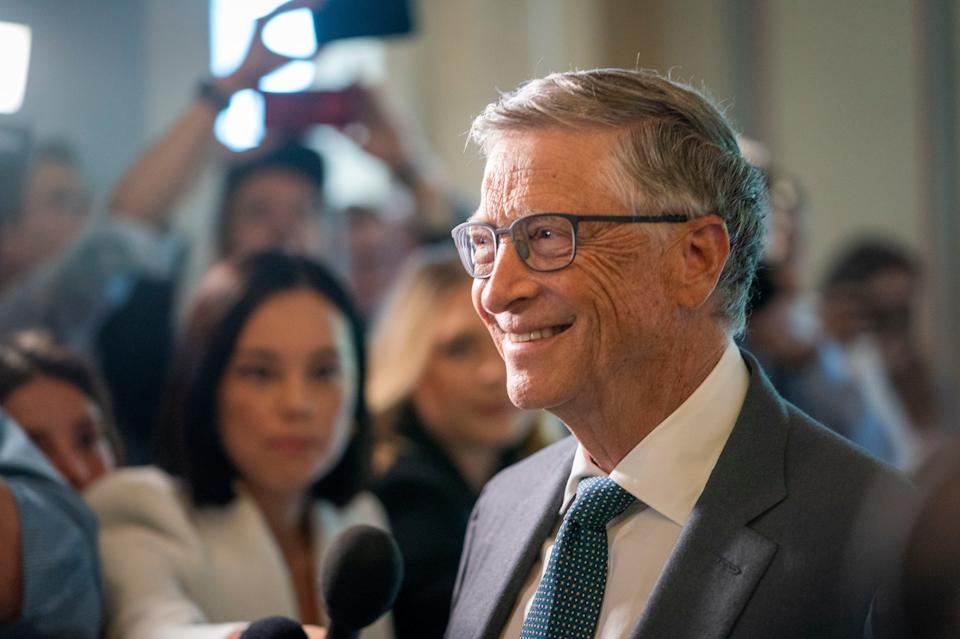Bill Gates, co-founder of Microsoft and one of the world’s wealthiest individuals, has announced a significant shift in how he plans to manage his fortune. Over the next 20 years, Gates intends to donate virtually all of his estimated $200 billion wealth to the Bill & Melinda Gates Foundation, which he established with his then-wife in 2000. The foundation will then close its doors on December 31, 2045.
Currently, Gates’ net worth stands at around $112.5 billion, ranking him as the fifth richest person globally according to Bloomberg’s Billionaires Index. His pledge to reduce his net worth by 99% over two decades reflects a determined commitment to accelerate philanthropic efforts addressing global health and poverty issues.
In the first 25 years of its operation, the Gates Foundation has distributed more than $100 billion to causes such as reducing maternal and infant mortality, eradicating infectious diseases, and lifting millions out of poverty worldwide. Gates plans to double this giving in the next 20 years, channeling about $200 billion into these efforts. This funding will come from the foundation’s existing $77 billion endowment and Gates’ personal assets, including earnings from ongoing ventures like TerraPower, his nuclear energy company.
Gates has expressed concern about stagnating progress in global health, especially as governments in the U.S. and Europe have scaled back foreign aid amid ongoing conflicts in Ukraine and Israel. He believes that by distributing his wealth more quickly, the foundation can save tens of millions of lives and make a more significant impact while he is still alive to see the results.
Gates’ decision is influenced by his direct experience with the foundation’s work, particularly in providing vaccines for preventable diseases such as pneumonia and diarrhea, which continue to claim lives in developing countries. He cited a famous quote from Andrew Carnegie’s 1889 essay “The Gospel of Wealth,” which argues that “the man who dies thus rich dies disgraced,” as a guiding principle in his decision to give away almost all of his fortune.
He has made it clear that he does not intend to die wealthy. “People will say a lot of things about me when I die, but I am determined that ‘he died rich’ will not be one of them,” Gates said. He also emphasized that there are too many urgent global problems to hold onto resources that could be used to help others.
Gates has publicly criticized reductions in U.S. foreign aid, particularly under the Trump administration, which he says have harmed vulnerable populations. He singled out Elon Musk, the world’s richest individual, for leading the U.S. Department of Government Efficiency, which has significantly cut funding for international aid programs. Gates expressed disappointment that such cuts have undermined efforts to provide vaccines and emergency food relief to the world’s poorest children.
The foundation’s planned closure in 2045 marks a clear end date for its operations, reflecting Gates’ desire to see his philanthropic goals achieved within his lifetime or shortly thereafter. This approach contrasts with many large foundations that operate in perpetuity, often distributing funds more gradually.
By accelerating the distribution of funds, Gates hopes to maximize the foundation’s impact during a critical period when advances in technology, including artificial intelligence, could enhance global health and development efforts. He remains optimistic about the potential for innovation to drive progress despite current challenges.
Bill Gates’ decision to commit nearly $200 billion to philanthropy and wind down the foundation by 2045 signals a new chapter in global charitable giving. His approach prioritizes immediate impact over indefinite longevity, aiming to address pressing global challenges more aggressively in the coming decades. The Gates Foundation continues to be a major force in global health and poverty alleviation, and this move will likely reshape its role and legacy in the years ahead.

